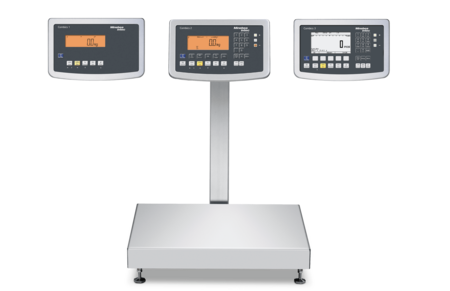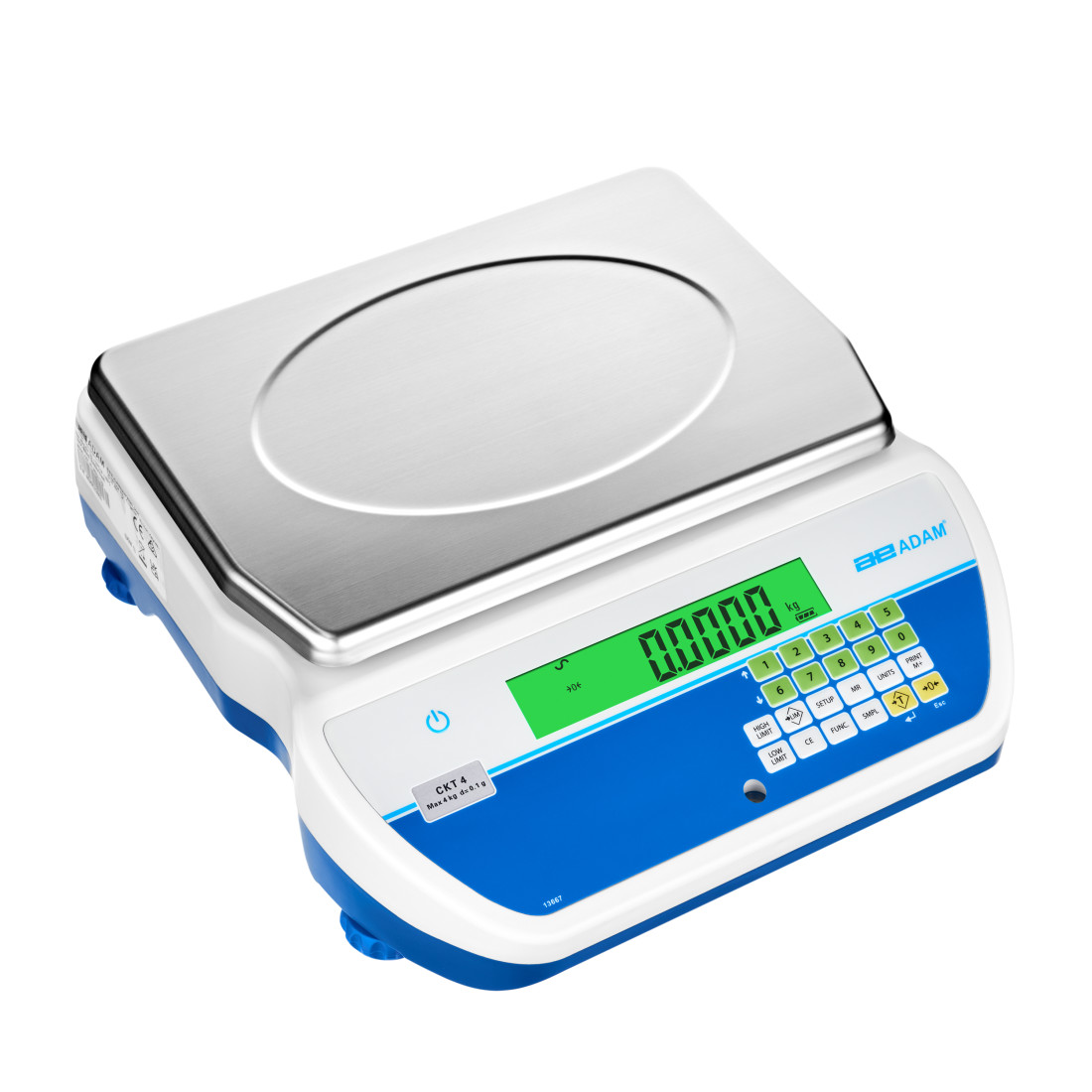Exactly How Commercial Scales Job: A Thorough Overview for New Users
Comprehending the auto mechanics behind industrial scales is crucial for new users that wish to ensure precision in their dimensions. These gadgets depend on lots cells and pressure scale technology to convert weight into a measurable layout, yet the subtleties of their procedure prolong beyond mere functionality. From the various types readily available to the crucial strategies for correct use and upkeep, each element plays a considerable function in achieving trusted outcomes. As we discover these parts, one should consider just how these components engage to improve performance in varied commercial applications.
Basics of Industrial Scales
Industrial ranges are crucial devices used across numerous markets, including production, logistics, and farming, to make sure exact weight measurements of heavy lots. The essential concept behind industrial ranges involves the conversion of weight right into a quantifiable type that can be shown digitally or analogically. These ranges use different mechanisms, such as tons cells or mechanical bars, to figure out the weight of objects placed upon them.

In enhancement to their measurement abilities, commercial ranges are made to hold up against severe atmospheres, including robust building that stands up to dust, wetness, and hefty effects. Calibration and upkeep are essential to ensure precision, as even minor discrepancies can result in considerable monetary ramifications. By comprehending the essentials of commercial scales, individuals can value their importance in different industrial applications.
Types of Industrial Scales
Various sorts of commercial ranges accommodate the diverse needs of various industries, each designed to deal with particular weighing jobs with accuracy and dependability. Among one of the most typical types are flooring scales, which are ideal for considering heavy and bulky items. These ranges commonly feature large systems and can fit palletized goods, making them crucial in storehouses and shipping facilities.
An additional type is bench scales, which are usually utilized for smaller sized products in manufacturing and retail setups. They give exact dimensions for items that need precision, such as chemicals or parts in production line (Industrial Scales). For mobile operations, mobile ranges offer versatility and convenience of transportation, suitable for fieldwork or momentary installments
In addition, specialized ranges like checkweighers are utilized in manufacturing lines to preserve high quality control by making certain that products satisfy weight specifications. Each kind of industrial range plays a crucial function in boosting functional performance and precision throughout numerous industries.
Exactly How Evaluating Systems Job
Weighing mechanisms are essential parts that make it possible for accurate measurement of mass throughout various industrial ranges. These mechanisms utilize different concepts of physics and engineering to offer specific weight analyses, crucial for stock administration, quality assurance, and conformity with regulative criteria.
One usual sort of weighing device is the lots cell, which runs on the concept of pressure assesses. When a tons is used, the lots cell deforms somewhat, creating an electric signal symmetrical to the weight. This signal is then transformed into a legible weight dimension by the scale's electronic devices.
One more extensively made use of device is the mechanical balance, which employs a system of weights and bars. Industrial Scales. This technique relies upon the concept of balance, where the weight of the object being measured is stabilized versus understood weights, enabling for straight dimension
Furthermore, pneumatic and hydraulic ranges leverage fluid visit homepage characteristics principles to measure weight. These systems utilize the stress exerted by a tons to establish weight, providing high precision for huge tons.
Correct Usage Techniques
When making use of industrial ranges, sticking to proper usage strategies is crucial for keeping and guaranteeing precise dimensions equipment stability. It is important to choose the appropriate range for your details application, as scales differ in capacity and precision.
Prior to weighing, make sure that the scale is put on a secure, degree surface area without disruptions or vibrations. This will help to minimize errors brought on by external elements. Furthermore, calibrate the scale according to the maker's specs prior to utilize, making sure that it is operating properly.
When positioning things on the range, disperse the weight uniformly to prevent tipping or harming the devices. Always enable the scale to maintain prior to videotaping the weight, as variations might happen during initial placement. For bulk products, make use of containers that are proper for the scale size to avoid overloading.
Moreover, prevent placing extremely warm or cold items straight on the scale, as temperature variants can impact accuracy. Last but not least, maintain the evaluating platform tidy and complimentary of debris to avoid contamination and make certain dependable outcomes. By complying with these techniques, customers can maximize the efficiency and longevity of their industrial ranges.
Upkeep and Calibration Tips
Ensuring the longevity and accuracy of industrial ranges calls for attentive maintenance and regular calibration. A precautionary upkeep timetable is vital; it should include routine assessments to recognize deterioration, particularly on lots cells and various other sensitive parts. Routinely cleaning the scale's surface area and making sure the surrounding location is complimentary from debris will certainly help keep its integrity and performance.
Calibration is similarly essential and ought to be done at regular intervals or whenever the range experiences substantial adjustments in temperature, humidity, or physical displacement. Use qualified calibration weights that are deducible to nationwide standards for accuracy. File each calibration session thoroughly to track efficiency with time and recognize any kind of trends or recurring issues.
Furthermore, bear in mind the scale's atmosphere. Prevent putting it near resources of resonance, electro-magnetic disturbance, or extreme temperatures, as these factors can negatively influence measurements. Lastly, train all drivers on correct scale usage and upkeep protocols to guarantee consistent performance and precision. By sticking to these upkeep and calibration tips, individuals can enhance the integrity of their industrial ranges, making sure optimal procedure in any setup.
Conclusion

Comprehending the mechanics behind commercial ranges is crucial for brand-new users that want to ensure accuracy in their dimensions.Industrial ranges are important tools utilized throughout various fields, consisting of production, logistics, and agriculture, to ensure precise weight dimensions of heavy tons. The basic principle behind commercial ranges includes the conversion of weight into a measurable form that can be displayed electronically or analogically. By recognizing the basics of commercial ranges, customers can value their significance in various commercial applications.
In verdict, comprehending the operation and upkeep of industrial ranges is crucial for guaranteeing accurate learn the facts here now weight dimensions in numerous applications. (Industrial Scales)